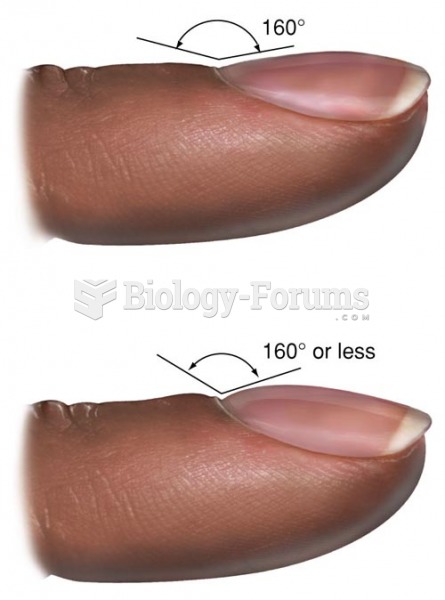|
|
|
The shortest mature adult human of whom there is independent evidence was Gul Mohammed in India. In 1990, he was measured in New Delhi and stood 22.5 inches tall.
For about 100 years, scientists thought that peptic ulcers were caused by stress, spicy food, and alcohol. Later, researchers added stomach acid to the list of causes and began treating ulcers with antacids. Now it is known that peptic ulcers are predominantly caused by Helicobacter pylori, a spiral-shaped bacterium that normally exist in the stomach.
It is believed that humans initially contracted crabs from gorillas about 3 million years ago from either sleeping in gorilla nests or eating the apes.
It is difficult to obtain enough calcium without consuming milk or other dairy foods.
Fungal nail infections account for up to 30% of all skin infections. They affect 5% of the general population—mostly people over the age of 70.
 USF Biologist Taegan McMahon conducts experiments on chlorothalonil at a research facility in East H
USF Biologist Taegan McMahon conducts experiments on chlorothalonil at a research facility in East H
 On March 25, 1911, as scores of young factory girls leaped to their deaths from the eighth, ninth, a
On March 25, 1911, as scores of young factory girls leaped to their deaths from the eighth, ninth, a





